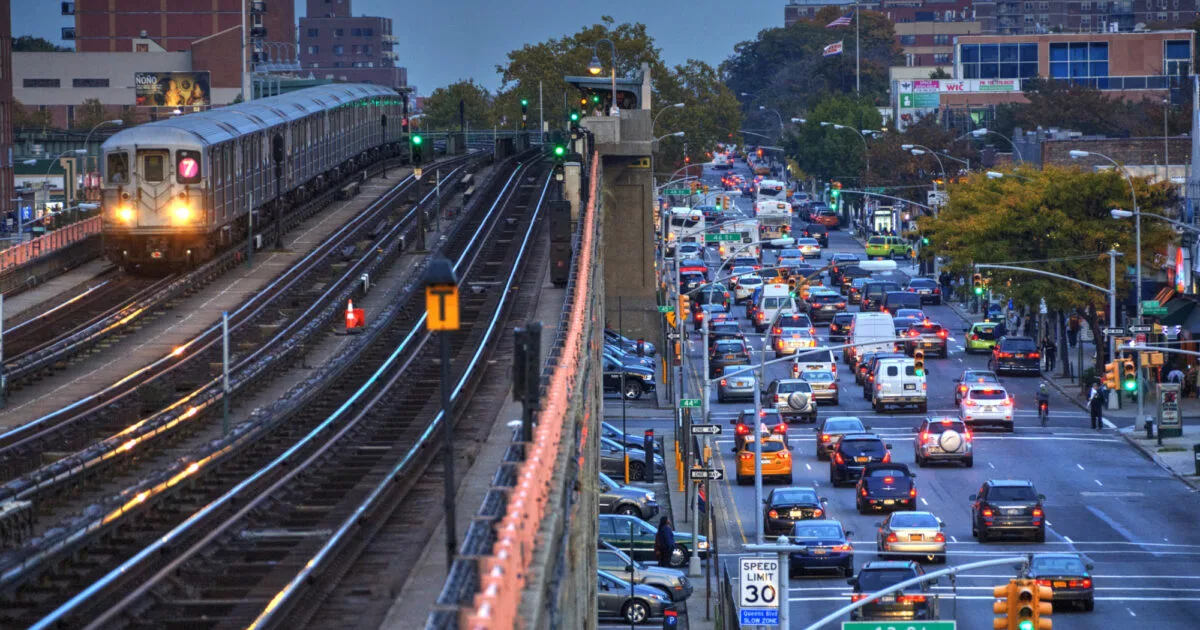New York Spends Biden Cash on Highways Over Public Transit
New York Spends Biden Cash on Highways Over Public Transit

New York Spends Biden Cash on Highways Over Public Transit

Finally NY is adding the lanes necessary to reduce congestion!
New York Spends Biden Cash on Highways Over Public Transit

New York Spends Biden Cash on Highways Over Public Transit

Finally NY is adding the lanes necessary to reduce congestion!
Two ways to spend a hundred million dollars in infrastructure money:
Tough choice!!
Dietrich Braess, a mathematician at Ruhr University, Germany, noticed the flow in a road network could be impeded by adding a new road, when he was working on traffic modelling. His idea was that if each driver is making the optimal self-interested decision as to which route is quickest, a shortcut could be chosen too often for drivers to have the shortest travel times possible. More formally, the idea behind Braess's discovery is that the Nash equilibrium may not equate with the best overall flow through a network
Yeah, it doesn't take much analysis to realize that highway throughput must be balanced by offramp throughput, which must be balanced by the throughput of any streets the offramp feeds, right down to the throughput of each of the destination entrances. If an offramp can handle 20 cars per minute but the highway is feeding it 21 cars per minute, it's going to back up and slow the highway until it can only feed that offramp less than 20 cars per minute (because it needs to clear the backlog in addition to handle new cars wanting to exit).
And when you have capacity slowing traffic, then you get turbulence from people trying to optimise their lane selection to get through the heavier traffic quicker. This adds up until traffic ends up stopped for no apparent reason because you get to the front of it and there's no accident or anything, your just get through the bottleneck.
Oh unless there is an accident as a result of people trying to get through quicker, and then you see the cases where you drive by the accident and think things should get better but they don't because the real bottleneck is still ahead.
Oh, that's disappointing.
Like giving a diabetic candy because their blood sugar is too high.
Except adding lanes doesn't alleviate congestion. As if induced demand is some mysterious secret.
TBF New York City has only known this for NINETY FUCKING YEARS.
It's almost like the idiocy is systemic somehow
There's money to be made.
Good, federal taxpayers shouldn't be paying for public transit in New York anyway, that should be left to the taxpayers of a particular city/county/etc. If they want it they can pay for it.
The exact same could be said about roads for cars and parking spots which are subsidized land that could go to better uses like public spaces and parks.
I bet you don’t realize how many things in the US are subsidized by the federal government one way or the other.
https://www.cbsnews.com/news/state-bailouts-federal-spending-give-receive/
NY would do well if that were the case. You're lucky they subsidize everyone else.